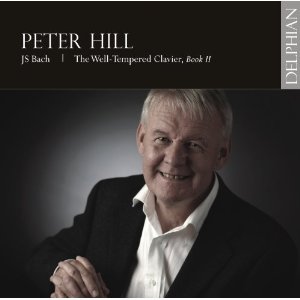Serious programmes about classical music are now virtually invisible on the major channels. There’s always BBC Two’s Maestro at the Opera, I hear you shout. Or something with that nice Gareth Malone. A good selection of Proms will be shown live on BBC Four, but with luck will scrupulously avoid the witless interviews with celebs in lieu of proper interval talks. Enough ranting.

There comes a point in almost every great soprano’s career when she tells the world that Tosca, the Marschallin or Isolde be damned: what she wanted to sing all along was The Great American Songbook. This announcement tends to be made - how shall I put this? - later rather than sooner. In Jessye Norman’s defence, in 1987, just five years after her landmark, ultra-luscious recording of Strauss’s Four Last Songs, she recorded a disc of Gershwin, Richard Rodgers et al.

The last night Haitink conducted at the Royal Opera House as musical director the staff wheeled on a moped as a leaving present. Ever since, his conducting has been inextricably linked to that mode of transport in my head. With Haitink, music-making has always seemed to be about getting from A to B in the most dependable, unfussy and often uninspiring way possible. For years, I haven't been able to see the point of him at all.



“Post-classical” the FatCat label call it, and well they might. All three of the acts who played at the Barbican last night in one way or another used the instrumentation of the classical concert hall but in a way that was completely dislodged from tradition – not raging against it, nor fighting to escape it in the sense of high modernism, nor reviving it, but rather looking back on it as something other, something of a different era.

I half expected to hear someone on the platform call out “Is there a doctor in the house?” For Mariss Jansons, principal conductor of the Royal Concertgebouw Orchestra, and esteemed beyond measure, didn’t look well during this concert, the second in the orchestra’s current Barbican residency. Drained from his exertions during Strauss’s Also sprach Zarathustra, he left the platform weary and grey. The following interval was seriously extended.

Brigham Young University in Utah is the largest private university in America, and is probably best known for its affiliation with The Church of Jesus Christ of Latter-day Saints, AKA the Mormons. What’s less commonly known is that the university also has a choir (four different choirs, in fact) that is among the finest collegiate ensembles in the US.

 Bruckner: Symphony no 5 Lucerne Festival Orchestra/Claudio Abbado (Accentus DVD)
Bruckner: Symphony no 5 Lucerne Festival Orchestra/Claudio Abbado (Accentus DVD)

Einstein on the Beach was meant to be one of the jewels in the crown for the Cultural Olympiad. The celebrated 1970s collaboration between Philip Glass, Robert Wilson and Lucinda Childs - which Susan Sontag claimed to be one of the greatest theatrical experiences of the 20th century - was receiving its UK premiere at the Barbican Theatre last night, thirty-six years after it was first created. And what we got was a technical shambles.



